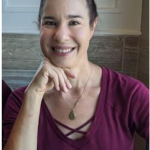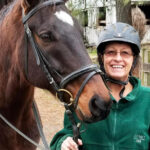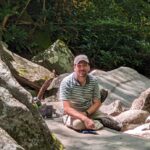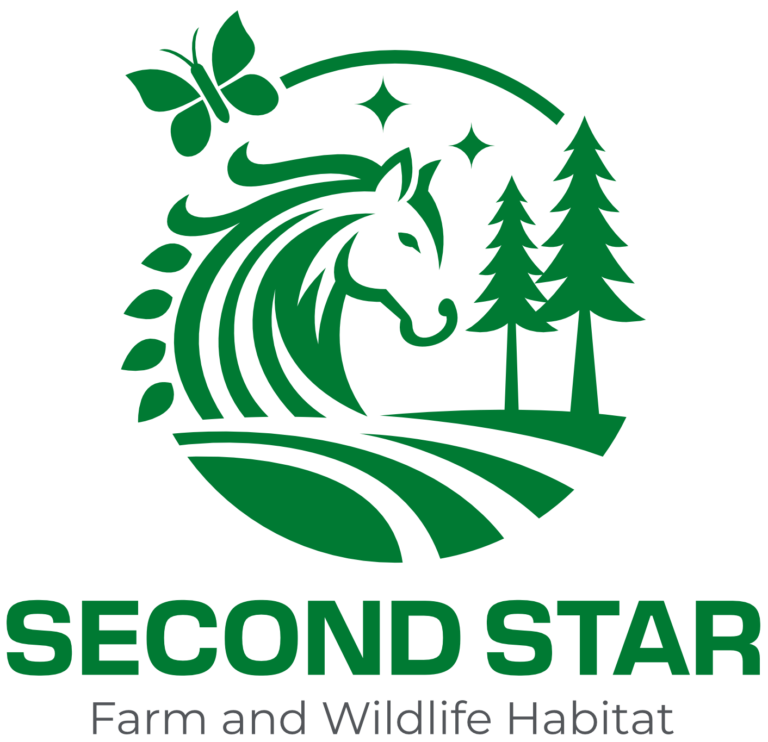Our Mission
Second Star Farm and Wildlife Habitat provides children with regular access to activities that they would not otherwise have the means to experience, provide education to help bridge the disconnect between human activities and the long-term health of our local ecosystems, and also foster a collaborative environment wherein all of our members can experience the joy and pride that comes with being a member of, and a contributor to, their community regardless of background. These goals were formed in line with those of the International Union for Conservation of Nature (IUCN) – a diverse global environmental organization whose mission is to “Influence, encourage and assist societies to conserve the integrity and diversity of nature and ensure that any use of natural resources is equitable and ecologically sustainable.” The IUCN’s Sustainable Development Goals include both “health and well-being” and “reduced inequalities” as two of their key pillars.[1]
Offering children a community to which they feel they belong, and in which they can connect with both peers and mentors, may provide participating children and adolescents with a platform via which to improve their emotional and physical health, and foster a sense of belonging[2]. Further, the extent to which we feel connected to nature influences our pro-environmental behaviors, and extensive research on the subject strongly indicates that this feeling of environmental connectedness improves mental, emotional, and physical wellbeing across demographics, as well as influencing social cohesion. [3][4][5]
Separately, numerous support programs implement forms of equine therapy to facilitate the improved mental and physical wellbeing of their participants, and a review of recent studies suggests that equine-related therapies may improve behavioral outcomes in youth groups deemed ‘at risk.’[6][7]
Given the above listed benefits to both humans and nature, Second Star is proud to serve local communities as a bridge to meaningful connections, healthy ecosystems, equity, and inclusion.
Work Cited:
[1] IUCN. https://iucn.org/our-work/informing-policy/international-policy/un-sustainable-development-goals. Accessed 17 November 2024.
[2] Pendergast, D., Allen, J., McGregor, G., & Ronksley-Pavia, M. (2018). Engaging Marginalized, “At-Risk” Middle-Level Students: A Focus on the Importance of a Sense of Belonging at School. Education Sciences, 8(3), 138-. https://doi.org/10.3390/educsci8030138
[3] Barragan‐Jason, G., de Mazancourt, C., Parmesan, C., Singer, M. C., & Loreau, M. (2022). Human–nature connectedness as a pathway to sustainability: A global meta‐analysis. Conservation Letters, 15(1), e12852-n/a. https://doi.org/10.1111/conl.12852
[4] Paniccià, M., Acito, M., & Grappasonni, I. (2024). How outdoor and indoor green spaces affect human health: a literature review. Annali Di Igiene. https://doi.org/10.7416/ai.2024.2654
[5] Barragan-Jason, G., Loreau, M., de Mazancourt, C., Singer, M. C., & Parmesan, C. (2023). Psychological and physical connections with nature improve both human well-being and nature conservation: A systematic review of meta-analyses. Biological Conservation, 277, 109842-. https://doi.org/10.1016/j.biocon.2022.109842
[6] Norwood, M. F., Lakhani, A., Maujean, A., Downes, M., Fullagar, S., Barber, B. L., & Kendall, E. (2021). The Horse as a Therapist: Effects of an Equine Program Without “Therapy” on the Attention and Behavior of Youth Disengaged from Traditional School. The Journal of Alternative and Complementary Medicine, 27(8), 678–687. https://doi.org/10.1089/acm.2020.0500
[7] Lentini, J. A., & Knox, M. S. (2015). Equine-Facilitated Psychotherapy With Children and Adolescents: An Update and Literature Review. Journal of Creativity in Mental Health, 10(3), 278–305. https://doi.org/10.1080/15401383.2015.1023916
Our Staff

Christina Turkelson
Founder Christina Turkelson is an avid dressage rider and has been a volunteer riding instructor for over 15 years. She has a Master’s Certificate in Wildlife Management from Oregon State University and is pursuing her Master’s degree in Fisheries and Wildlife Sciences through that same institution.

Carol Taylor
Farm owner, Carol Taylor, is a former 4-H’er and has a long history of community give-back. Her mother, Barbara Baird, founded Loudoun Therapeutic Riding Foundation in 1974 and Carol has championed that cause for decades. She is also a very active volunteer for, and supporter of, the Odyssey of the Mind program as well as the Fairfax Workers Coalition.

Jonah Wachtell
Treasurer, Jonah Wachtell, found his love of nature and horses as a younger adult, and has since pursued these passions with dedication. For nearly 15 years, he has volunteered his services to a local barn and has served as a mentor for working students.
